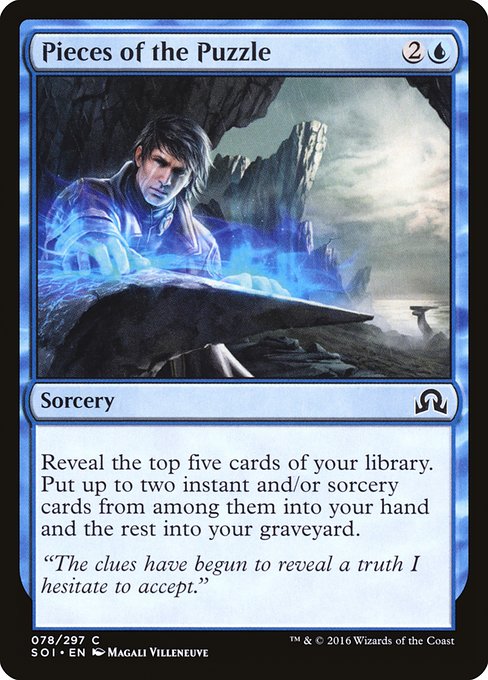Alchemy is an ever-shifting format built around the idea of a Standard that never grows stale. Today we are going to explore what Alchemy is, how it works, and what the meta currently looks like. I’m Luka “Robot Rallis” Sharaska, and you’re about to level up your game.
Standard is a format that has long suffered from one big problem: When a meta grows stale, should Wizards of the Coast ban cards, or should players wait for answers to be printed in new sets? Generally, players are not fond of Standard bannings for reasons that are obvious. Popular cards usually cost money, and that money may as well go into a garbage can when a powerful Standard staple gets banned. Alternatively, with new sets taking years to come to fruition after development, it can be difficult to address problematic Standard cards with newly-printed answers. Even answers printed in the very next set will take months to arrive and potentially solve the problem! This is a problem Alchemy seeks to solve. Let’s take a closer look.

What is Alchemy?
Alchemy is a relatively new Magic: The Gathering Arena-only format, featuring digital-only cards and “rebalanced” cards, that started in 2021. From the design side of Magic, this has a lot of interesting implications. The first is they can develop mechanics that only work online, like Conjure, which creates new cards that aren’t in your deck or sideboard. The second is that they can change how cards function to create a more interesting play experience, like increasing a mana cost or adding additional abilities.
How does Alchemy work?
Rather than explain every mechanic and every rebalanced card, I’ll cover the broad strokes. Here are the biggest Alchemy takeaways.
- The Standard card pool is the starting card pool of Alchemy.
- The rotation schedule of Standard also applies to Alchemy.
- Rebalanced and digital-only cards exist to keep the meta unique and fresh.
- Supplemental Alchemy sets are released alongside Standard sets.
The Alchemy Best-of-1 Metagame
While the decklists presented are not the optimal lists for every single event and meta, and this list isn’t fully exhaustive, this is a good starting point for most archetypes. It will give you an idea of what to expect from the most popular decks of the format.
Tier 1
These two decks have generally high rates of play, as well as high win percentages.
- Mono-Red Aggro: With burn spells and cheap creatures, this deck looks to quickly end games.
- Rakdos Anvil: Sacrifice everything in your pursuit of glory, starring Oni-Cult Anvil.
Most Everything Else
These decks are slightly less represented, and are a bit more meta-dependent, but are still quite strong when piloted at the right time by a good player. Beyond mono-red and Rakdos Anvil, the format is quite diverse, but this is the highlight reel.
- Mono-White Aggro: A never-ending flood of valuable creatures that are hard to remove cleanly.
- Esper Midrange: This versatile list of powerful cards can adapt to almost any situation.
- Gruul Werewolves: Tovalar, Dire Overlord adds reliable card advantage to this hard-hitting list.
- Mono-Black Midrange: Put the squeeze on your opponents with ample removal and sticky threats.
- Mono-Red Goblins: Mount a Goblin Offensive until your opponents are no more.
- Naya Revels: Gain life to stay alive and grow your creatures into massive beaters.
- Rakdos Midrange: Switch gears as you will from discard and removal to burst damage and aggression.
- Selesnya Enchantress: Stall until your late-game synergies become nearly insurmountable.
The Alchemy Best-of-3 Metagame
Tier 1
These three decks tend to represent the most common and powerful archetypes of the format, boasting strong win rates and taking up a big share of the meta.
- Esper Midrange: The most powerful cards, especially removal, across three strong colors.
- Mono-Red Aggro: 16 one-drops, 21 lands, and a decent sideboard against control.
- Rakdos Anvil: Maindeck synergy with a sideboard plan against control and aggro.
Most Everything Else
Plenty of other strategies exist in best-of-3 thanks to powerful sideboard options. Since it would be impossible to list everything, here are several of the most prominent inclusions.
- Orzhov Aristocrats: Spin those wheels until your opponent succumbs.
- Hinata Combo: A control deck featuring a very potent late-game combo.
- Domain Control: The most powerful removal and finishers in each color in one pile.
- Naya Revels: A dedicated life gain deck with decent sideboard answers to many game plans.

Putting Everything Together
Do not expect the Alchemy meta to linger in one area for too long. Even as I’m writing this now, new decks are being tested and piloted to great results. Like any format, remember that good mana often defines the format, and that mono-red will almost always be present. With that in mind, remember that tri-lands like Raffine’s Tower, pain-lands like Karplusan Forest, and slow-lands like Sundown Pass will be legal until rotation near the end of 2023. Experiment, watch for new Alchemy decklists and news via Hipsters of the Coast, watch for changes to individual cards via the official Wizards of the Coast website, and remember to have fun. I’ve been Luka “Robot Rallis” Sharaska, and now you know the basics of Alchemy.
Luka Sharaska (they/them) earned the nickname “Robot” by having a monotone voice, a mind for calculating odds, and a calm demeanor. Robot has been playing Magic for more than a decade, starting during the days of New Phyrexia in 2011. Most days, you’ll find them in the gym or creating content for their YouTube channel: Robot Rallis.

